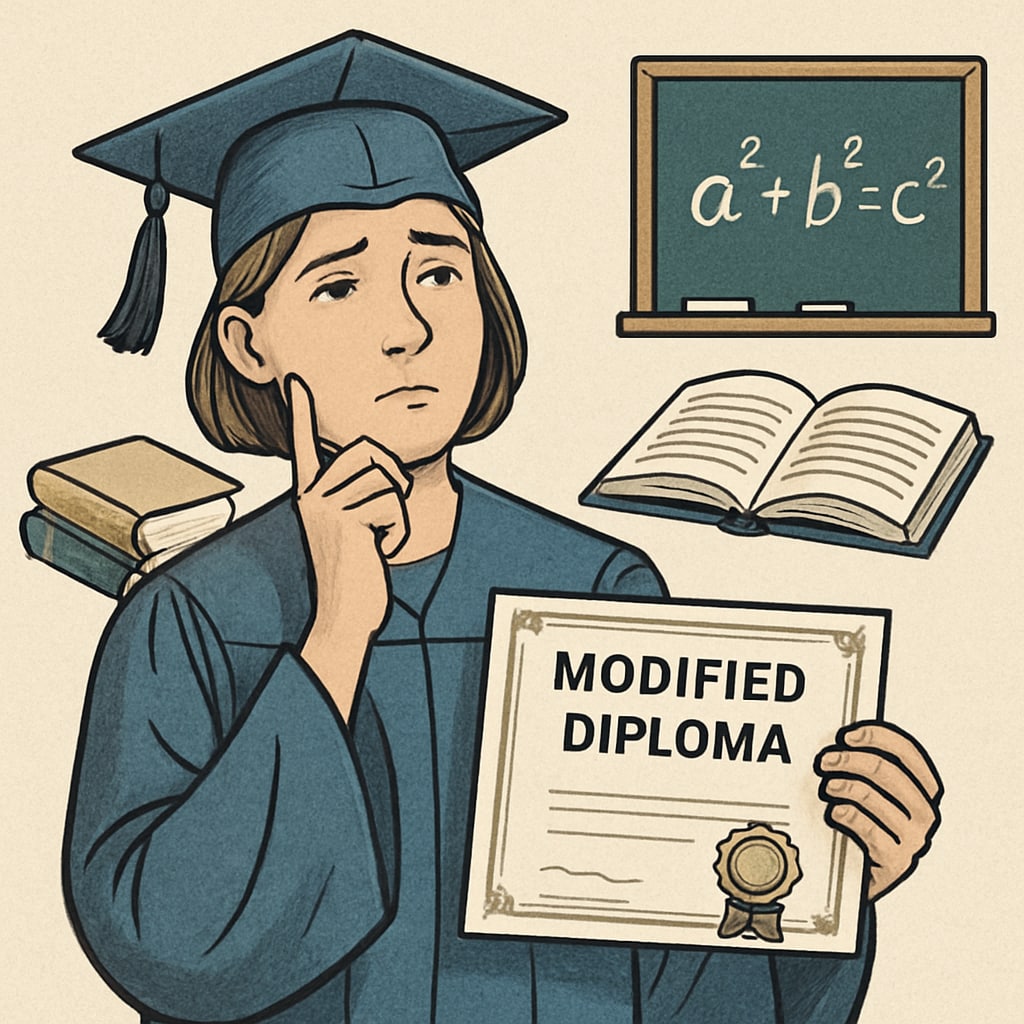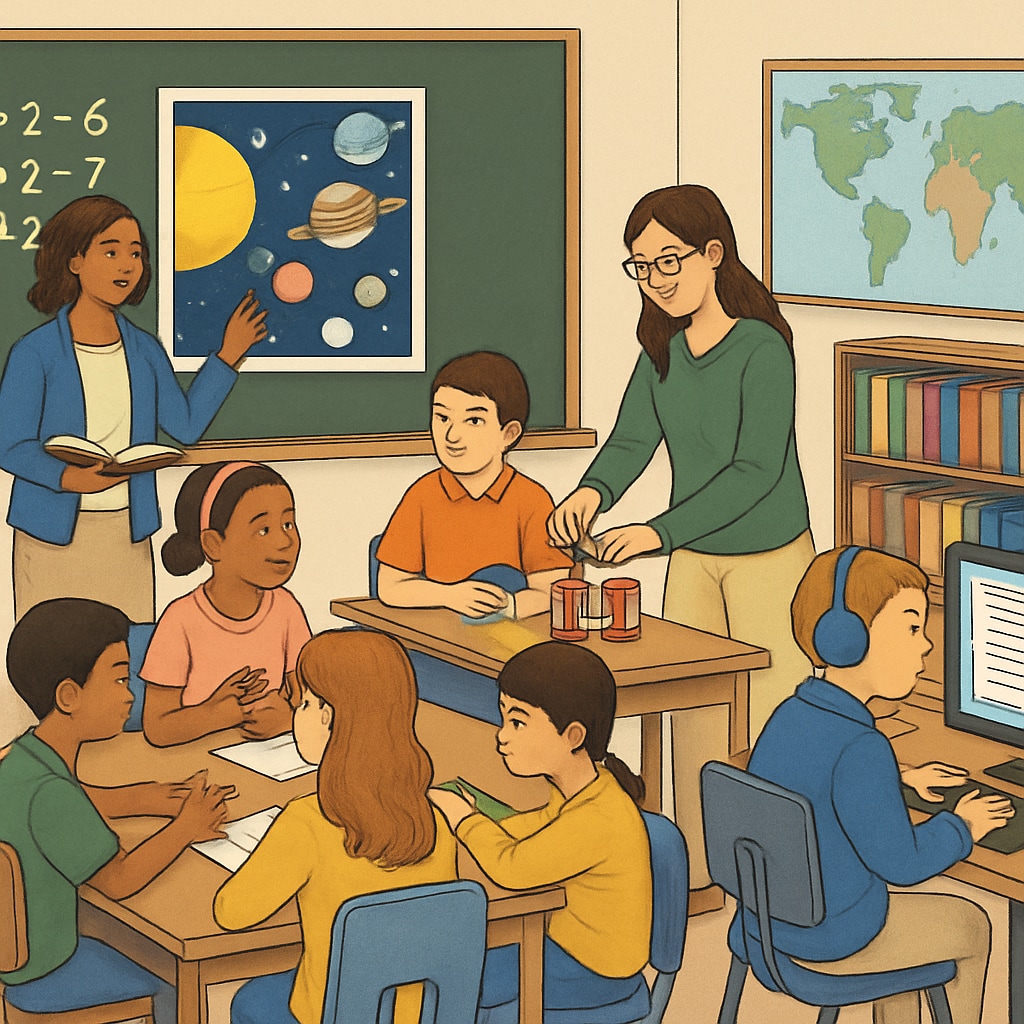Receiving a modified high school diploma can be a bittersweet moment for many students. While it represents the completion of their education journey, it often carries a stigma that leads to feelings of regret and shame. The question arises: is the traditional evaluation system doing justice to diverse talents, or is it inadvertently creating barriers for students with unique strengths and challenges?
Modified diplomas, which differ from standard high school diplomas, are typically awarded to students who meet alternative graduation requirements. However, these diplomas are often seen as inferior, leaving graduates with lingering doubts about their achievements. In this article, we will explore the psychological impact of these diplomas, analyze the flaws in current evaluation systems, and propose reforms that embrace diversity in education.

Understanding Modified Diplomas and Their Impact
Modified diplomas are designed to accommodate students who face unique challenges, such as learning disabilities or life circumstances that prevent them from completing standard graduation requirements. While these diplomas aim to recognize effort and achievement, they are often viewed as “lesser” by employers, colleges, and even the graduates themselves.
As a result, many students experience feelings of regret and shame, particularly when comparing their accomplishments to those of peers with standard diplomas. This psychological burden can affect their self-esteem and future aspirations. For example, studies from reputable sources like Britannica highlight the importance of equitable education systems in fostering student confidence and success.
It’s crucial to understand that these emotions are not inherently tied to the diploma itself but to societal perceptions and the limitations of traditional evaluation systems. By reevaluating these systems, we can reduce the stigma associated with modified diplomas.
Challenges in the Current Education Evaluation System
The root of the issue lies in how educational success is measured. Most high school systems prioritize standardized tests, rigid curricula, and one-size-fits-all benchmarks. While these methods provide a framework for assessing academic achievement, they fail to account for the diversity of student needs, skills, and potential.
For instance, students with exceptional artistic talents or those who excel in vocational training may not fit neatly into traditional academic molds. Yet, their contributions to society are equally valuable. According to Wikipedia’s overview on education systems, embracing diverse evaluation criteria can lead to more inclusive outcomes that benefit both students and society.

Proposed Reforms for Inclusive Education Evaluation
To address the challenges posed by modified diplomas and the stigma associated with them, education systems must evolve. Here are several reforms that can help create a more inclusive and equitable evaluation framework:
- Flexible Graduation Criteria: Schools should offer multiple pathways to graduation, recognizing achievements in areas beyond traditional academics, such as vocational skills, arts, or community service.
- Personalized Learning Plans: Individualized education plans (IEPs) can help tailor curricula to each student’s strengths, ensuring they receive support to succeed in their unique areas of expertise.
- Public Awareness Campaigns: Educating employers, colleges, and the general public about the value of modified diplomas can reduce stigma and open doors for graduates.
- Holistic Evaluation Metrics: Introducing metrics that evaluate soft skills, critical thinking, creativity, and other non-academic qualities can provide a more comprehensive view of student capabilities.
Implementing these reforms will require collaboration among educators, policymakers, and stakeholders. By shifting the focus from conformity to individuality, we can create systems that celebrate diverse talents and empower all students to thrive.
Conclusion: The Path Forward
Modified high school diplomas, though intended to accommodate diverse needs, often leave graduates with feelings of regret and shame. These emotions stem from societal perceptions and the limitations of traditional education evaluation systems. To combat these issues, it is essential to reform these systems to embrace diversity and recognize all forms of achievement.
By adopting inclusive graduation criteria, personalized learning plans, and holistic evaluation metrics, we can foster a culture that values individuality and supports students in reaching their full potential. Let us move toward an education system that not only prepares students for the future but also celebrates their unique journeys.
Readability guidance: This article uses short paragraphs, lists, and accessible language to ensure clarity and engagement. It minimizes passive voice and incorporates transitional words for smooth flow.


